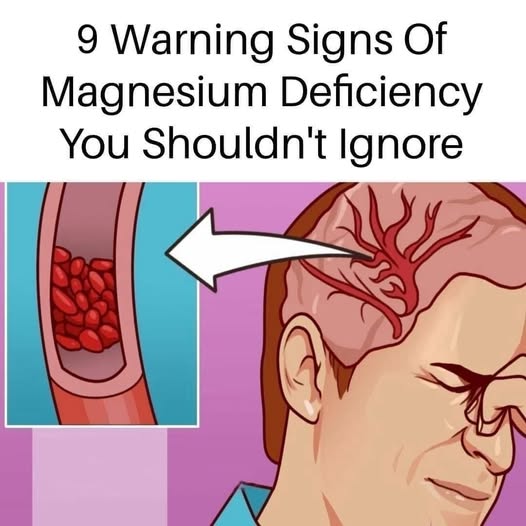7. Digestive Disorders
Conditions like Crohn’s disease, celiac disease, or irritable bowel syndrome (IBS) can interfere with magnesium absorption.
Chronic diarrhea or vomiting also leads to magnesium loss.
8. Excessive Alcohol Consumption
Alcohol increases the excretion of magnesium through urine and can lead to lower magnesium levels over time.
9. Aging
As people age, their ability to absorb magnesium decreases. Additionally, older adults often take medications that deplete magnesium.
10. Calcium Overload
High calcium intake without sufficient magnesium can create an imbalance, as both minerals need to work together for optimal absorption and utilization.
Signs of Magnesium Deficiency
Muscle cramps or spasms
Fatigue or weakness
Anxiety or depression
Irregular heartbeat
Difficulty sleeping
Headaches or migraines
How to Boost Magnesium Levels
Eat Magnesium-Rich Foods:
Dark leafy greens (spinach, kale)
Nuts and seeds (almonds, sunflower seeds, pumpkin seeds)
Whole grains (brown rice, quinoa)
Legumes (black beans, chickpeas)
Dark chocolate (in moderation)
Take Supplements:
Magnesium citrate or glycinate are well-absorbed forms. Always consult a healthcare provider before starting supplements.
Reduce Sugar and Processed Foods:
Cut back on sodas, sweets, and packaged foods to prevent magnesium depletion.
Practice Stress Management:
Engage in yoga, meditation, or deep breathing to reduce stress-induced magnesium loss.
Minimize Alcohol:
Moderating alcohol consumption can help preserve magnesium levels.
Ensuring adequate magnesium intake can improve energy levels, support mental health, and enhance overall well-being. Consider making dietary and lifestyle adjustments to keep this vital mineral in balance!

